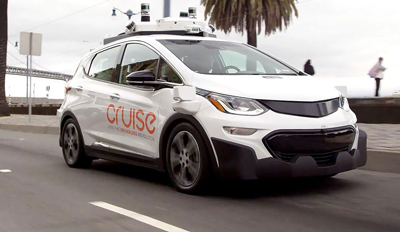General Motors’ self-driving unit Cruise has been hit with a probe from the National Highway Traffic Safety Administration (NHTSA) for issues with its autonomous driving system.
The agency opened the investigation Dec. 12, according to NHTSA documents, to look into its received complaints regarding “incidents in which Automated Driving System (ADS) equipped vehicles operated by Cruise LLC may engage in inappropriately hard braking or become immobilized while operating in the specified Operational Design Domain (ODD).”
The NHTSA said it has received three reports of ADS initiating hard braking maneuvers “in response to another road user that was quickly approaching from the rear.”
Documents shared by the agency show there have been three crashes and fires, two incidents that resulted in injuries and two injuries.
Along with reports of hard braking, the NHTSA also said it received complaints regarding Cruise vehicles becoming immobilized:
“With respect to the incidents of vehicle immobilization, NHTSA has been notified of multiple reports involving Cruise ADS equipped vehicles, operating without onboard human supervision, becoming immobilized…These immobilizations may increase the risk to exiting passengers," NHTSA said. "Further, immobilization may cause other road users to make abrupt or unsafe maneuvers to avoid colliding with the immobilized Cruise vehicle, by, for example, diverting into oncoming lanes of traffic or into bike lanes."
NHTSA also said immobilizations may present a secondary safety risk by obstructing the paths of emergency response vehicles, delaying response times.
The NHTSA is not aware how many immobilization incidents have occurred, but said it has learned about multiple instances of it happening through “discussions with Cruise, media reports and submissions from local authorities, such as the San Francisco Municipal Transportation Agency (SFMTA) and the San Francisco County Transportation Authority (SFCTA).”
According to CNBC, Cruise believes the crashes can be attributed to vehicles “predicting and responding to the behavior of aggressive or erratic road actors.” These actions were taken to minimize the severity of an accident and potentially decrease the risk of injury.
Cruise secured the first-ever permit to charge for self-driving car rides in San Francisco in June. By September, GM had already shipped the first software updates to Cruise vehicles, after a crash three months earlier left two injured.










Abby Andrews